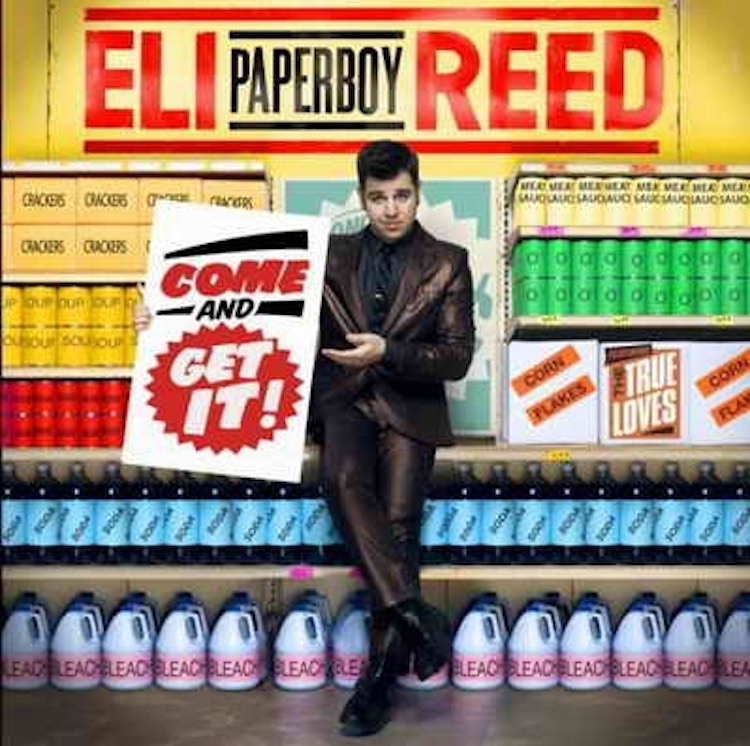"Come And Get It"

Soul, gospel, rhythm and blues: all genres steeped in the spiritual struggle of ’60s America and all cannibalistically feasted upon for profit by artists like Joss Stone, Amy Winehouse, James Hunter and, of course, Eli “Paperboy” Reed.
Come and Get It is Reed’s third album and first for a major label. Producer Mike Elizondo (Eminem, Gwen Stefani) has added an expensive, thick pop sheen over the raw momentum so skilfully captured by Ed Valauskas on previous album, Roll With You. With the raw passion of that second record capturing the attention of Mojo magazine and ivory-molester Jools Holland, Come and Get It is a poorly orchestrated album of nothingness filled with benign efforts to conjure up soul.
Though title track ‘Come and Get It’ is an enjoyable romp over a Motown styled backing, there is a palpable lack of quality embedded within Reed’s songwriting. Perhaps the most obvious example comes only two tracks in on ‘Name Calling’ where a callow chorus claims: “You went from name calling to calling my name. You went from school-yard teasing to all night pleasing.” The very concept of burned high school hate converted to some kind of driven love in later years is at once limp, wet and derivative of some awful Hollywood dream. Both the song and album feature the usual horn stabs, string arrangements and double-time tambourine shakes that would generally befit songs of a soulful nature, but only the most naïve music fan could ever consider the tactic to be related to a music rooted in suffering.
Everything from the wide stereo panning of instruments to allow Reed’s crackly yelp to cut through, right up to the very sound of those instruments is heavily influenced by classic records from the Motown / Stax genre; but a plain, impassioned love of an era is rarely likely to generate an artist able to do little other than attempt vague recreations of greater songs. And it’s not as though Reed is especially gifted when it comes to lyricism, or vocal delivery, so there is little need to invest in a record of sub-standards — unless you particularly enjoying collecting bleached soul.
If Reed wants to play around with that old time Juke feel that permeated Southern America in the early ’60s, he’s going to have to work a lot harder. Not only is he not gifted with a voice like Cooke, Redding or Pickett, he simply lacks the environment those great artists were working from. Come and get it? Nope.
Get the Best Fit take on the week in music direct to your inbox every Friday

Great Grandpa
Patience, Moonbeam

Deafheaven
Lonely People With Power

Perfume Genius
Glory





